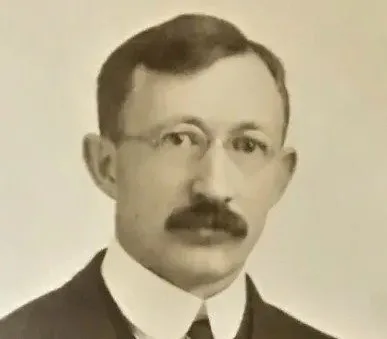
Big interest shown in quirky man’s fortune
Editor’s note: Following is the conclusion of a story series by contributing writer Brent Engel.
Two Louisiana men brokered an end to courtroom clashes over the will of a rich Pike County maverick.
Ras Pearson and William Stark proved vital in settling the affairs of Fielden Estes, who died at age 80 in September 1900. The unconventional horse dealer and real estate broker left an estate that would now be worth $10 million. Pearson drew up the will and Stark served as executor.
“Further than these, there were few that the old man had any use for,” the St. Louis Republic said of the two.
The will left most of the childless bachelor’s fortune to nieces and nephews, but others filed claims and wrangling was expected to last a decade.
The Daily News and Intelligencer of Mexico predicted “a big scramble” and the Republic said “Pike County lawyers will all become fat.”
Attorneys “scrap over cases in court, but when they have a chance at a whole pie they just join hands and take upper and lower crust and filling,” added the Bowling Green Times.
The will left the equivalent today of $45,000 to J.W. Crewdson, a Louisiana doctor who had cared for Estes. Crewdson said he was owed $1.8 million. A jury offered the doctor $591,000, but he appealed.
“When the doctors get a pull on a rich man’s estate, they go for the whole cheese,” the Clinton Daily Democrat editorialized.
Claims also were made by Estes’ 78-year-old brother, Samuel, and another former caretaker, Louisiana optometrist Angus Prettyman.
Pearson was a rising legal star who was a prominent member of Louisiana Presbyterian Church. He despised vulgar jokes and had been devoted to his wife, Lillie, who died of tuberculosis at 22 the year after they were married.
At 35 in 1900, he was bright, good-looking and what the St. Louis Post-Dispatch called a “most interesting” attorney. He and his 36-year-old brother, Eugene, ran a law firm in Louisiana.
Ras Pearson had served as Pike County prosecuting attorney. He was “a brilliant orator” whose “star blazed brightly in the courtroom” thanks to “a masterful and ornate eloquence,” said Bowling Green attorney Jefferson Davis Hostetter, who would go on to serve as a state legislator.
Stark was the 40-year-old treasurer of Stark Brothers Nurseries and an uncle of future Missouri Gov. Lloyd Stark. He had started as an office manager and worked his way up. The Republic described him as “an excellent businessman” who had “the determination to handle the large (Estes) estate for the best interests of all concerned” and “the ability to carry out that determination.”
Stark used mighty powers of persuasion in getting all sides to approve a resolution in just a few months.
“He so completely possessed the confidence of all the beneficiaries under the will that all of them readily gave him powers of attorney, and he went to work at the task of settling up the estate,” the Republic said.
The bulk was divided among Estes’ survivors, including his two brothers. Crewdson got the equivalent today of $360,000 and two Louisiana properties Estes had owned. Prettyman was awarded the equivalent of $124,000.
Pearson and Stark also were paid well. The Republic praised the two men, saying they had “played no small part in the successful management of this estate” with a “much-to-be-desired solution of all the difficulties.”
In December 1902, Estes’ remaining 3,020 acres of land were sold to unidentified buyers. The total brought in was what would today would be $5.6 million, which was divided by the heirs.